Published Research
Skade, L. (in press). “All by Myself”: Navigating the Lonely Odyssey of Ethnographic Fieldwork in the Business and Society Domain. Business & Society. (VHB-Rating 2024: B) – Download the paper here
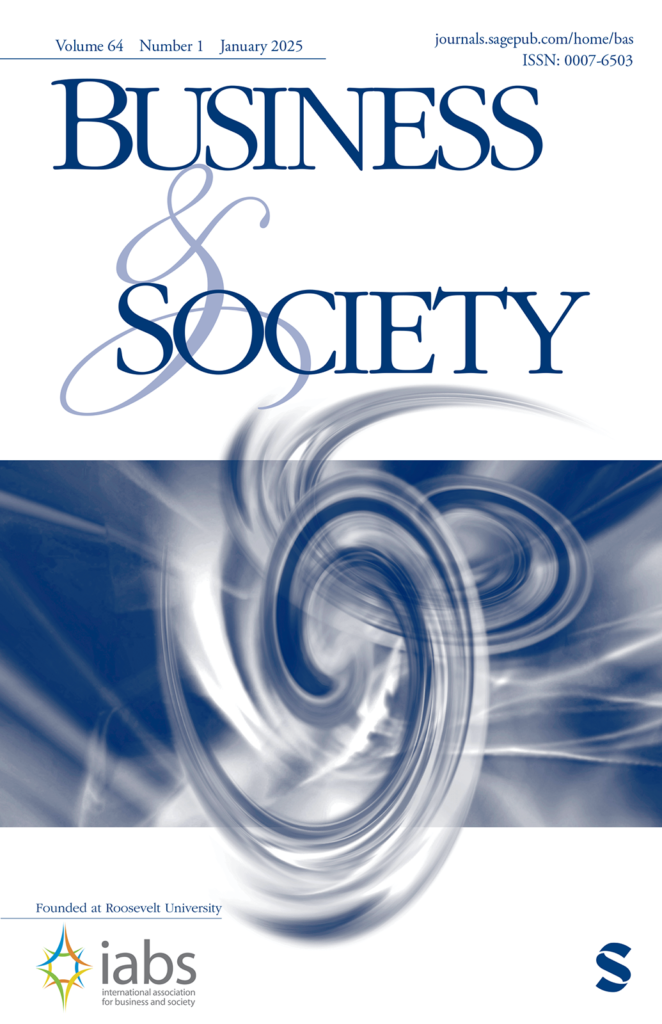
Abstract
Conducting ethnographies in the business and society (BAS) domain is often a lonely odyssey for early-career researchers (ECRs), whose emotional struggles are frequently concealed behind celebrated research outcomes. I highlight the emotional stress during their research and call for solutions beyond their personal responsibility. I offer five suggestions to combat negative emotions and help ECRs navigate these challenges through collaborative efforts and systemic changes.
Skade, L., Lehrer, E., Hamdali, Y., & Koch, J. (in-press). The Temporality of Crisis and the Crisis of Temporality: On the Construction and Modulation of Urgency During Prolonged Crises. Journal of Management Studies (VHB-Rating 2024: A) – Download the paper here
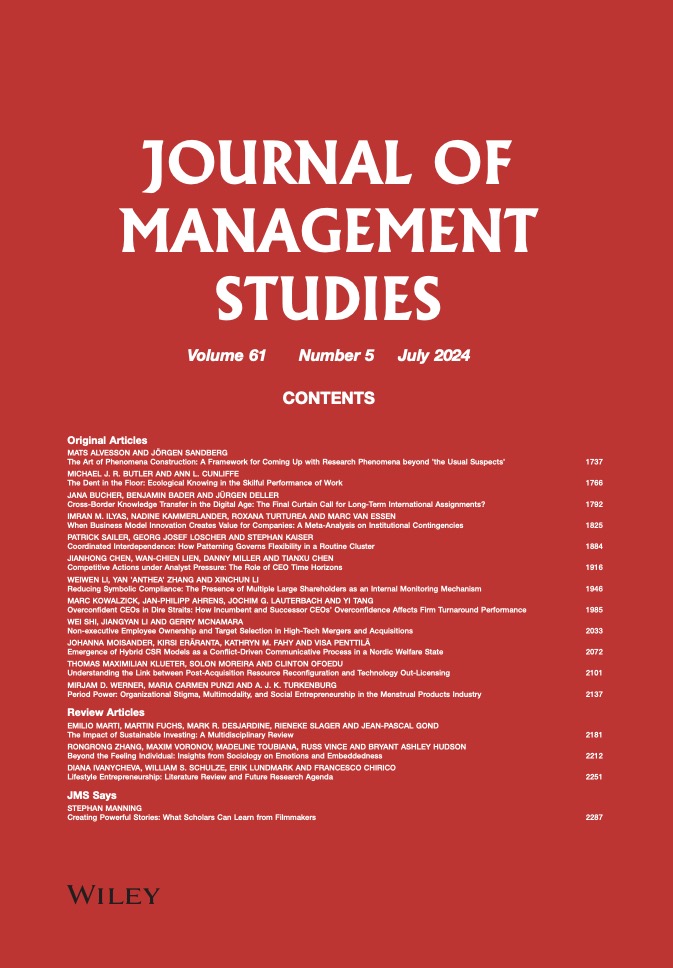
Abstract
Despite the increasing frequency and awareness of large-scale crises, our knowledge of how organizations construct urgency to act in these extreme contexts – especially if they are prolonged disasters rather than single events – remains limited. By undertaking an explorative study of the Robert Koch Institute (RKI), the central German organization for disease control and prevention during the COVID-19 pandemic, we address the research question of how organizations construct urgency during prolonged crises. In doing so, we develop a process model of the construction and modulation of urgency. Specifically, we draw on a temporal perspective to argue that the RKI translated temporal cues of the crisis to mobilize different forms of urgency via the central mechanism of modulating urgency (i.e., by speeding up or slowing down activities) over an extended period of time. Our findings contribute to an advanced understanding of the role of temporality and urgency during prolonged crises by (1) showing how urgency is enacted through temporal practices, (2) extending the literature on temporality and how organizations materialize temporality to construct and modulate urgency, and (3) demonstrating that various forms of urgency exist, rendering it a much more multifaceted concept than previously suggested.
Skade, L., Wenzel, M., & Koch, J. (2024). “Do as We Say and You’ll Be Successful”: Mundane Power in Corporate Entrepreneurship. Journal of Product Innovation Management (VHB-Rating 2024: A) – Download the paper here
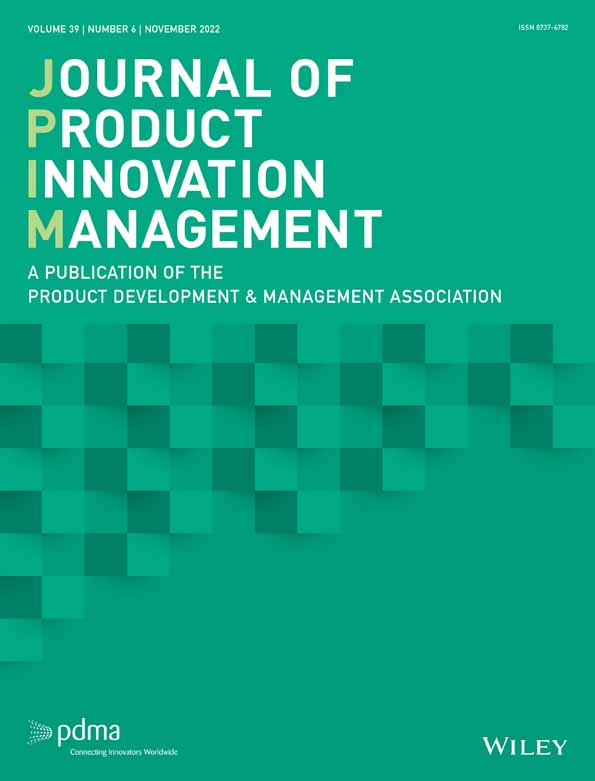
Abstract
Corporate entrepreneurship is infused with power. Prior research has begun to shed light on the role of power in innovation contexts. Yet, we know much less about the day-to- day enactment of mundane power in corporate entrepreneurship, which, despite its partial subtlety, is no less consequential regarding decisions on pursuing or abandoning innovative ideas. This article extends the literature on corporate entrepreneurship and power by exploring the discursive practices through which managers and employees of a corporate accelerator disciplined venture founders in the pursuit of innovative ideas. Based on a Foucauldian discourse analysis of ethnographic data, we show how a clash of entrepreneurship discourses invokes the day-to-day performance of three discursive practices—observing, exercising, and punishing—through which the accelerator’s staff ensured that venture founders would adopt a dominant entrepreneurship discourse, with important implications for decisions on pursuing innovative ideas or not. These findings deepen our understanding of enacting mundane power in corporate entrepreneurship as well as the enablers and outcomes of such power enactment. We also outline the practical implications for emerging corporate innovation settings such as accelerators.
Hamdali, Y., Skade, L., Jarzabkowski, P., Nicolini, D., Reinecke, J., Vaara, E., & Zietsma, C. (2024). Practicing Impact and Impacting Practice? Creating Impact Through Practice-Based Scholarship. Journal of Management Inquiry (VHB-Rating 2024: B) – Download the paper here
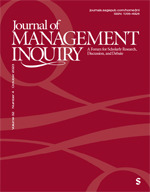
Abstract
This curated debate provides a discussion on impact and its relation to practice-based scholarship, i.e., scholarship grounded in the social theories of practice. Five experienced senior scholars reflect on conceptualizations of impact, how it can be created and disseminated, and on the role of practice-based scholarship in this process. The authors discuss the role of researchers as members of the academic system, their activities related to generating, developing, and challenging new theory, and their reflexive relation to the research context when explaining their research to stakeholders to create knowledge and thus, for impacting practice. To suggest ways of practicing impact, their contributions also conceptualize impactful theory and reflect on the relationship between the production and usage of knowledge. These insights are an important contribution to the debate on scholarly impact and provide critical guidance for impactful scholarly work beyond conventional concepts.
Skade, L., Stanske, S., Wenzel, M., & Koch, J. (2020). Temporary Organizing and Acceleration: On the Plurality of Temporal Structures in Accelerators. Research in the Sociology of Organizations (VHB-Rating 2024: B) – Download the paper here
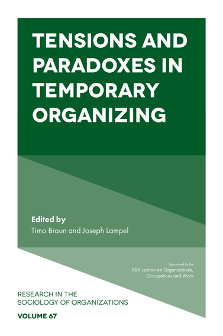
Abstract
“Acceleration”, i.e., the performance of activities in ever-shorter periods of time, is a distinctive feature of contemporary organizations and societies that is reflected in, and driven by startups’ attempts to scale up their businesses in ever-faster ways. Although prior research has highlighted that temporary organizing is a key way to accelerate the startup process, we know little about how actors do so. Based on a one-year ethnographic study at a startup accelerator, we explore how actors enact temporary organizing to attempt to accelerate the startup process. Our analysis shows that this process involves a plurality of partly conflicting temporal structures. As our study shows, such conflicts invoke tensions that actors live out in their daily activities. We identify three temporal practices—sequencing, freezing, and merging—through which actors engaged in temporary organizing enact acceleration in the startup process by reconciling these temporal structures. Our study has implications for understanding time in the expanding literature on temporary organizing and acceleration.